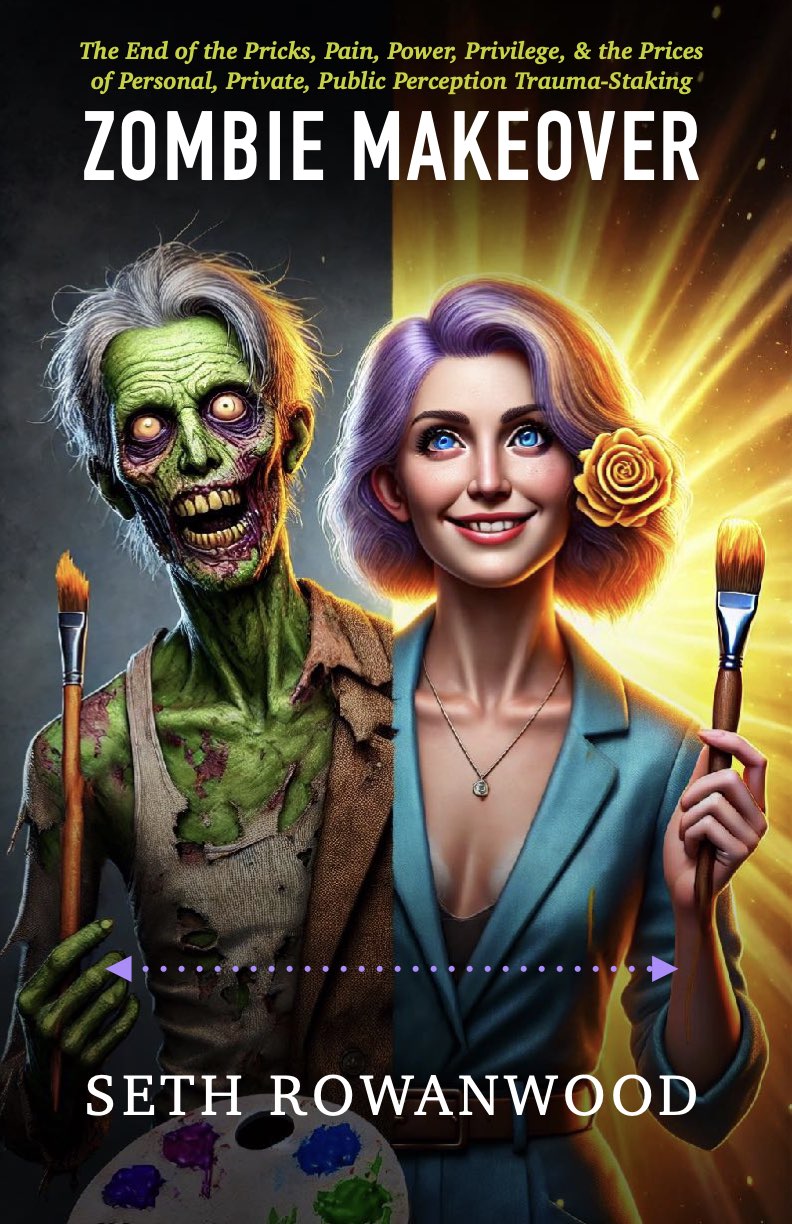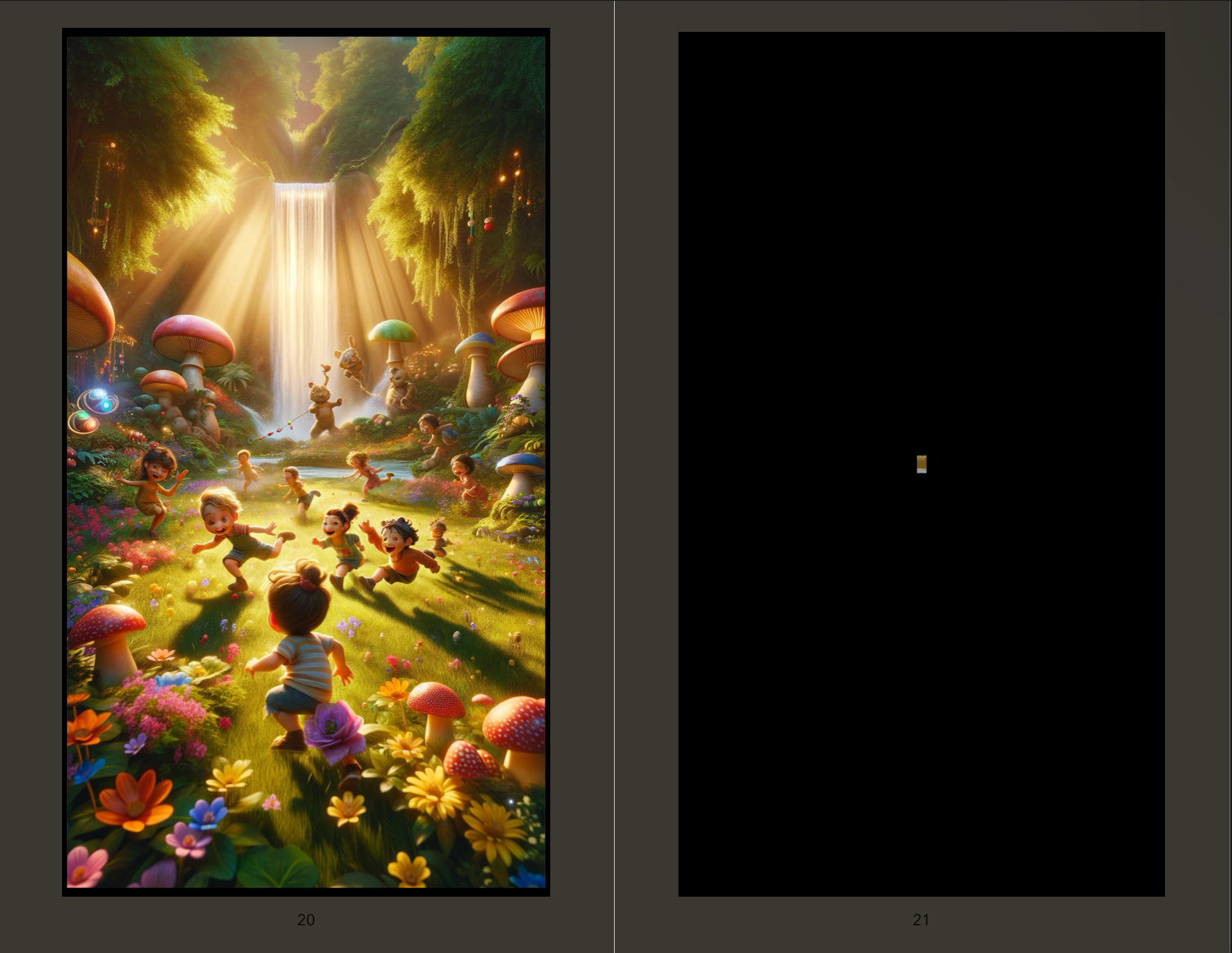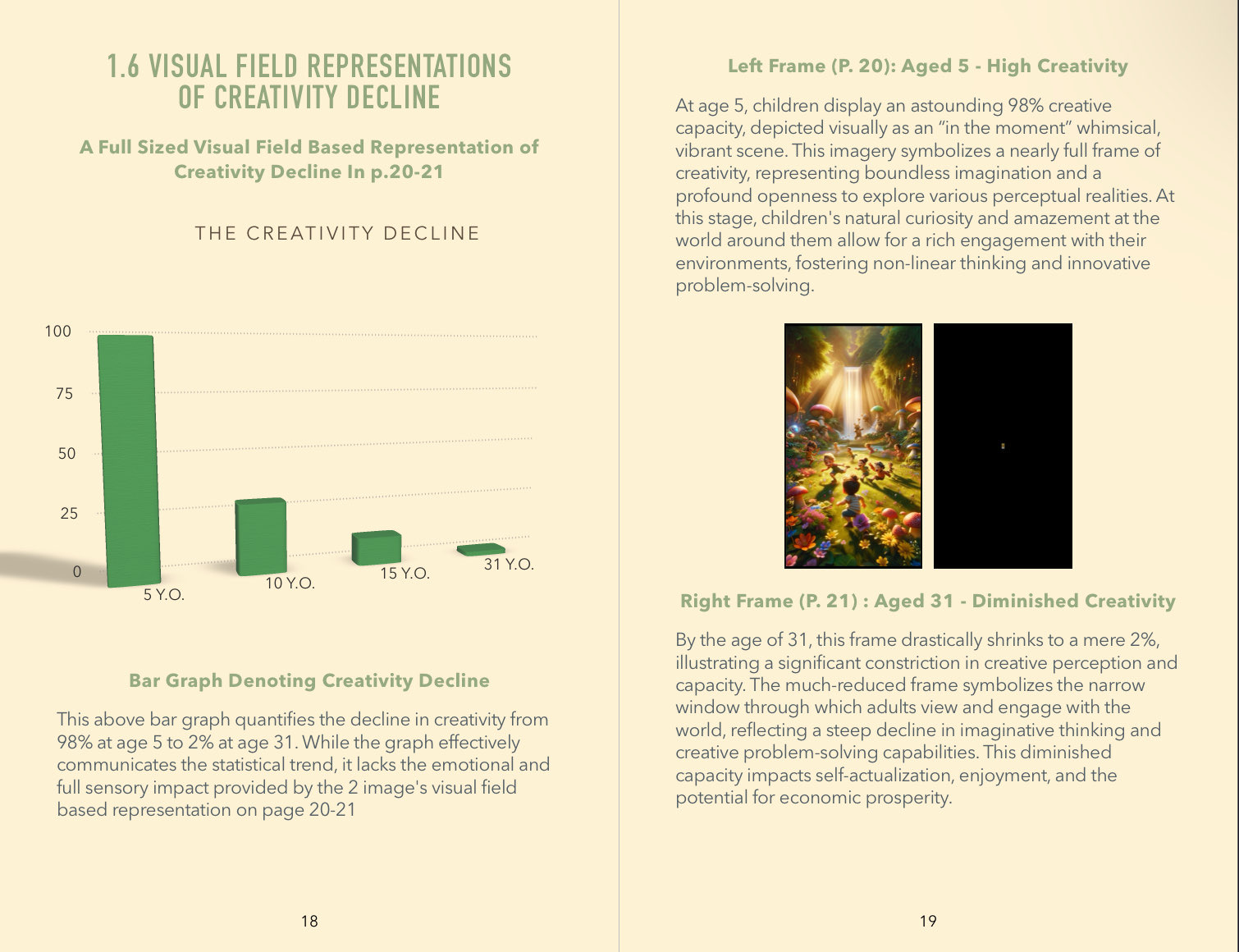Zombie Makeover

In a world where identities are often dictated by societal pressures and external validations, “ZOMBIE MAKEOVER” embarks on a transformative journey to reclaim the true self. This compelling narrative delves into the heart of authenticity, dismantling the layers of false identities that bind us.
Set in the vibrant town of Expressionville, the story follows a group of unique characters: Ellie, the Enigmatic Painter; Sam, the Singing Scientist; Fred, the Fantastic Juggler; and a quiet, observant girl named Lily. Their lives are disrupted by a mysterious figure known only as The Prick, who sows seeds of doubt and negativity, leading to a chaotic battle of egos and suppressed creativity.
As the town descends into a spiral of criticism and narcissism, Lily’s miraculous dance rekindles the spirit of authenticity and joy. Through her unbounded heart and self-knowledge, she inspires the townspeople to rediscover their true selves and the power of humility.
This book explores the profound impact of one real presence and the boundless expression of an unfettered being. It provides practical steps for embracing humility, fostering healing, and engaging in joyful play.
Supported by multidisciplinary research and real-life case studies, The End of the Prick offers a roadmap for personal and collective transformation.
Join us on a journey of self-discovery, and unlock the boundless potential of your authentic self. Embrace the quiet strength of humility and the limitless joy of genuine self-expression.
To read the e-book, click on image.
Zombie-Makeover Unlocking Cognitive Potential:
The Role of Creativity, Flow, and Enjoyment
In today’s fast-paced world, maintaining cognitive performance and well-being is crucial. Research shows that fostering creativity, flow states, and ensuring enjoyment can significantly enhance cognitive capacities and lead to empowerment.
🔍Case Study Highlights:
1. Individual Level:
- Worst-Case: Chronic stress in high-pressure jobs leads to cognitive decline and poor health. [McEwen, 2007]
- Best-Case: Balancing work with creative hobbies and mindfulness practices enhances cognitive flexibility and resilience. [Dietrich, 2004; Davidson et al., 2003]
2. Organizational Level:
- Worst-Case: High-stress environments result in high turnover and decreased innovation. [PLOS ONE, 2018]
- Best-Case: Supportive workplaces that encourage creativity and work-life balance drive innovation and satisfaction. [ESCAPE Project, 2020]
3. Societal Level:
- Worst-Case: Education systems focusing solely on rote learning contribute to mental health crises and economic stagnation. [BMC Psychiatry, 2020]
- Best-Case: Holistic education systems that promote creativity and emotional intelligence foster resilience and economic growth. [Cambridge Cognition, 2017]
🧠Visualizing Creativity Decline: The attached images visually highlight a drop in creativity from 98% at age 5 to just 2% by age 31, ( dipiction of % of visibility of the same image) reflecting a decline in imaginative thinking and non linear and complex problem-solving capabilities.
🔗The Cost of “Zombie Mode”: Living in “zombie mode,” characterized by routine and lack of creative engagement, has profound costs:
- Economic Impact: A lack of creativity stifles innovation, crucial for economic growth. [Runco, 2004]
- Health Consequences: Chronic stress and lack of creative engagement are linked to mental health issues like anxiety and depression. [McEwen, 2007]
- Societal Costs: Societies not prioritizing creative education and work environments may face stagnation and lack of progress. [BMC Psychiatry, 2020]
🌟Takeaway: By integrating creative activities, promoting flow states, and ensuring enjoyment, we can unlock greater cognitive potential. As Einstein said, “If you want your children to be intelligent, read them fairy tales. If you want them to be more intelligent, read them more fairy tales.” This holistic approach is key to thriving in personal and professional domains.
Let’s create environments that nurture minds and empower communities!
Get the source citations HERE:
Sources:
– McEwen, B.S. (2007). Physiology and neurobiology of stress and adaptation. Physiological Reviews.
– Dietrich, A. (2004). The cognitive neuroscience of creativity. Psychonomic Bulletin & Review.
– Davidson, R. J., et al. (2003). Alterations in brain and immune function produced by mindfulness meditation. Psychosomatic Medicine.
– PLOS ONE. (2018). The magnitude and effect of work-life imbalance on cognition and affective range.
– Cambridge Cognition. (2017). Can stress at work affect cognitive performance?
– BMC Psychiatry. (2020). The Effects of Stress on Cognitive Aging, Physiology, and Emotion (ESCAPE) Project.
– Runco, M. A. (2004). Creativity. Annual Review of Psychology, 55, 657-687.


